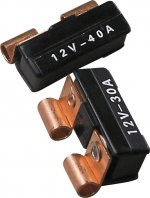Offline
I've written before about my short in #1 fuse - accessories - horn/ driving light/ cigarette lighter/ interior lights.
purple in
as you know from another post - my horn "post" is out meaning there is no switch working for the horn.
I went to replace the fuse - engine off - and blew a 25 amp fuse just trying to press it into the holder - it was too hot to hold.
Is this normal? should I have disconnected the battery?
ideas?
thanks all
purple in
as you know from another post - my horn "post" is out meaning there is no switch working for the horn.
I went to replace the fuse - engine off - and blew a 25 amp fuse just trying to press it into the holder - it was too hot to hold.
Is this normal? should I have disconnected the battery?
ideas?
thanks all

 Hi Guest!
Hi Guest!

 smilie in place of the real @
smilie in place of the real @
 Pretty Please - add it to our Events forum(s) and add to the calendar! >>
Pretty Please - add it to our Events forum(s) and add to the calendar! >> 

